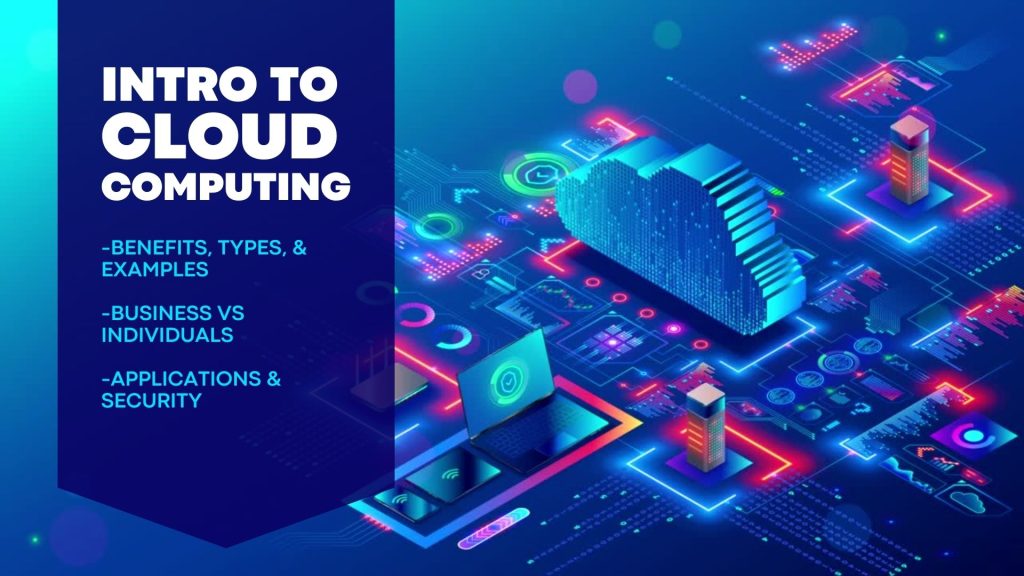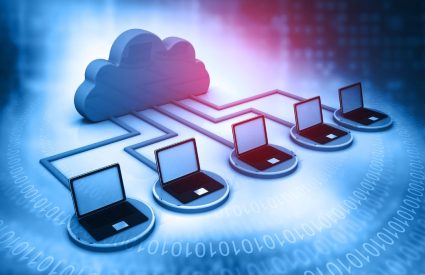A Gentle Introduction to Cloud Computing

A Gentle Introduction to Cloud Computing
Cloud computing is transforming the way we use technology and is revolutionizing the way we interact with data. It’s a powerful tool for businesses and individuals alike, allowing for the storage and sharing of data at a fraction of the cost and time of traditional methods.
With cloud computing, you can access data from any location, collaborate with colleagues in real time, and gain insights from large data sets quickly. By leveraging the cloud, businesses can increase productivity, lower costs, and gain competitive advantages.
Whether you’re an individual looking to store digital assets or a business seeking to streamline operations, cloud computing can provide the solutions you need. In this guide, we’ll look at what cloud computing is, how it works, and the various ways it can help you.
What is cloud computing?
Cloud computing is the process of using remote servers hosted by third parties to store, manage, and process data, rather than storing data on local computers or an on-site server.

This model facilitates quick access to data and lets individuals, businesses, and other organizations avoid the costs and maintenance of owning, managing, and storing hardware. Cloud computing also enables real-time collaboration and the ability to add more capacity as needed.
It’s a broad term that encompasses many different types of services, such as software-as-a-service, platform-as-a-service, and infrastructure-as-a-service.
Cloud computing is often referred to as “the cloud” due to the fact that much of the infrastructure that powers it is not housed in one place. Cloud computing has become increasingly popular due to the ever-growing list of benefits it provides.
READ MORE: SaaS vs PaaS vs IaaS – What’s the Difference?
Benefits of cloud computing
By leveraging cloud computing, businesses can gain a competitive edge and improve their bottom line. From increased efficiency and cost savings to enhanced security and scalability, here are the biggest benefits cloud computing offers:
Types of cloud computing services
Different types of cloud computing services are available, each with its own advantages and disadvantages. These include Infrastructure as a Service (IaaS), Platform as a Service (PaaS), and Software as a Service (SaaS).

Software-as-a-Service: SaaS lets you use a software application hosted by the provider. You don’t need to install it on your own computers or worry about managing patches and updates. Some common examples include Gmail, Salesforce, and Workplace by Facebook.
Platform-as-a-Service: PaaS providers let you build an application without having to install an operating system, configure server software, or procure hardware. PaaS provides the computing environment and application programming interfaces (APIs) you need to build the application. Some common examples include Heroku and Google App Engine.
Infrastructure-as-a-Service: IaaS lets you create and manage virtual computers hosted in data centers managed by cloud providers. You can use them to host websites, run applications, or process big data. Some common examples include Amazon Web Services and Microsoft Azure.
Cloud computing for individuals
If you’re an individual looking to store digital assets, cloud computing can help you easily access, manage, and share your data from any device. For individuals, cloud computing can provide various services, from file storage to software and applications.
Whether you are a student, an entrepreneur, or just someone looking to gain some extra knowledge, cloud computing can be a great way to make the most out of the digital world and get the most out of your devices.
For example, cloud computing can also help you create and edit documents, and track your time. If you’re looking to collaborate with others, cloud computing can help you create a document, spreadsheet, or presentation that can be accessed by others in real time and edited simultaneously.
Cloud computing for businesses
In today’s digital age, businesses of all sizes are relying on cloud computing to stay competitive and cost-effective. Cloud computing is a cost-effective way for businesses to access computing resources, such as storage and applications, without having to invest in new hardware and software.

Cloud computing is becoming increasingly popular as it provides businesses with the flexibility to scale their operations quickly and efficiently. With cloud computing, businesses can access data and services from anywhere at any time, allowing them to respond quickly to changes in the market.
Moreover, cloud computing can help businesses reduce costs associated with maintenance, operations, and infrastructure. As cloud computing continues to become more widely adopted, businesses are recognizing the value it can bring to their organizations.
Common cloud computing applications
Cloud computing technologies are all around you and you may not even know that you’re using them. Here are some of the most common forms of cloud computing applications:
Cloud computing security
Cloud computing security is essential for any business that utilizes cloud services. Without proper security measures, companies leave themselves vulnerable to security breaches and data loss that could cost them dearly.

Fortunately, cloud computing security has come a long way in recent years. There are now a number of security measures that businesses can take to ensure their data is safe and secure. This includes encryption of data, secure login protocols, and strong access control measures.
By taking the time to implement the right cloud computing security measures, businesses can protect their data, safeguard their customers’ information, and ensure that their operations remain secure.
Tips for getting started with cloud computing
If you’re thinking about getting started in the cloud, here are some tips to consider beforehand:
Well, there you have it. This introduction to cloud computing has provided you with the necessary information to learn about its benefits and downsides. Any comments? We’d love to hear from you in the comment form below.

Related Cloud Computing
A Gentle Introduction to Cloud Computing
SaaS vs PaaS vs IaaS – What’s the Difference?
3 Must-Have Skills for a Cloud Computing Career
What Is a Cloud Engineer?